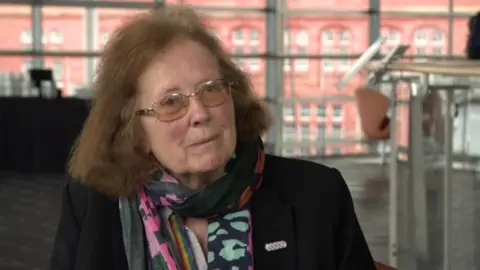Quarter of Labour Senedd members stepping down
 BBC
BBCAt least a quarter of Labour's Senedd politicians are stepping down at the next election.
So far eight out of the group's 30 members have said they are quitting in 2026.
On Tuesday evening Julie Morgan, Member of the Senedd (MS) for Cardiff North, added she would step away from frontline politics.
She is joined by seven other Senedd members, including former first ministers Mark Drakeford and Vaughan Gething.
Combined, Labour will be losing over 114 years of experience once the Senedd members leave. All bar one have been or are currently ministers.
It comes ahead of a potentially tough election for the party, to be fought with a new voting system that will reflect more how people vote.
The next election will also see the Senedd grow from 60 to 96 members.
Selections have started in all the Senedd's parties but no members of the Conservatives or Plaid Cymru have yet said if they are standing down.
Julie Morgan, a former minister and the wife of the late Welsh Labour leader Rhodri Morgan, was first elected in 2011, having previously been an MP for the constituency.
She successfully campaigned for a ban on smacking children in Wales, and also for victims of the infected blood scandal.
She said on social media on Tuesday that representing the seat had been an "honour of a lifetime".
Others quitting the Senedd include former transport minister Lee Waters, ex-first minister Vaughan Gething and Children's Minister Dawn Bowden.
Backbench MS for Mid and West Wales Joyce Watson, former counsel general Mick Antoniw and Economy Secretary Rebecca Evans are also leaving.
Analysis
By Elliw Gwawr, BBC Wales News political correspondent
The next Senedd will be very different for a number of reasons. There will be more politicians, increasing from 60 to 96.
A new proportional system means that seats will be more equally distributed between the parties, and we can expect to see a new party being elected, in Reform.
On top of this a number of familiar faces, with a wealth of experience among them, will also be leaving.
New boundaries and a new voting system, means that every party has difficult decisions to make about who stands where.
But Labour and Plaid have rules in place to increase the number of women in winnable seats, which could lead to some interesting internal battles.
